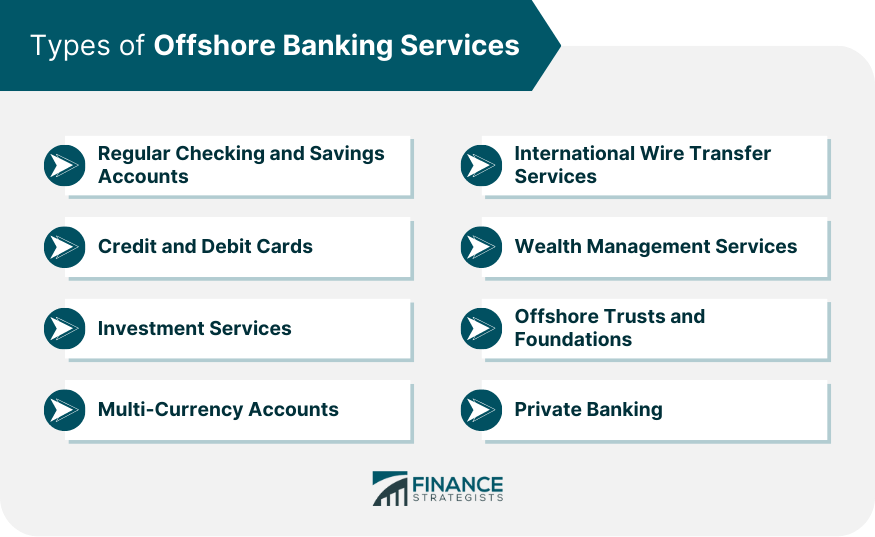Offshore Company Formation: Your Path to International Success
Offshore Company Formation: Your Path to International Success
Blog Article
Comprehending the Legal Ramifications of Offshore Firm Formation

Lawful Structure for Offshore Firms
When establishing an offshore company, comprehending the lawful framework governing its development and operation is crucial for compliance and danger administration. Offshore business operate under certain regulations and policies that vary from those of onshore entities. The lawful framework for offshore business generally includes stipulations for company registration, investor needs, director obligations, and tax obligations.
Company enrollment involves submitting the essential documentation to the appropriate governing authorities in the chosen jurisdiction. This procedure frequently requires thorough details concerning the firm's structure, investors, and desired activities. Additionally, overseas firms must follow specific shareholder demands, such as preserving a register of shareholders and keeping this information up to date.
Directors of offshore companies have fiduciary tasks to act in the most effective passions of the company and its shareholders. They are accountable for looking after the business's procedures, ensuring conformity with all appropriate legislations, and handling dangers effectively. Furthermore, recognizing the tax obligation obligations of an overseas business is vital to stay clear of any type of possible legal concerns. By sticking to the legal structure governing offshore companies, companies can operate with self-confidence while lessening legal risks.


Tax Obligation Effects and Laws
Recognizing the tax ramifications and regulations is critical when thinking about the facility and procedure of an offshore company. Offshore firms are frequently subject to favorable tax regimes, supplying minimized or no tax rates on foreign-earned earnings.
Tax policies for overseas companies differ substantially throughout jurisdictions, and it is critical to look for expert guidance to understand the specific demands and obligations. Thorough knowledge of tax obligation laws and guidelines, as well as proper tax obligation planning, are important to ensure the certified and effective operation of an overseas company.
Conformity Requirements and Coverage
Guaranteeing compliance with governing requirements and keeping exact reporting are necessary elements of handling an offshore firm effectively and transparently. Offshore business should stick to the legislations and regulations of both the territory in which they are incorporated and any kind of various other appropriate jurisdictions where they conduct organization. Conformity requirements normally consist of submitting annual returns, financial declarations, and tax obligation records with the suitable authorities. Failure to satisfy these responsibilities can cause fines, fines, or even the abrogation of the business's enrollment.
In addition to regulative conformity, offshore firms are frequently based on reporting requirements to make certain openness and stop prohibited tasks such as money laundering or tax obligation evasion. Reporting commitments may entail revealing info about the company's possession framework, economic activities, and recipients. This information might require to be shown to governing bodies, tax authorities, or various other governmental agencies, depending on the jurisdiction.
Preserving comprehensive and exact documents is important for showing conformity and reacting to any type of useful content questions or audits successfully. Offshore companies need to apply durable coverage devices and inner controls to guarantee that great site they meet all lawful needs and run with honesty.
Property Protection and Privacy Regulations
In the world of overseas business formation, an important consideration is the interplay in between possession protection techniques and privacy regulations. Offshore jurisdictions frequently provide enhanced asset security systems that protect possessions from possible risks such as lawsuits, financial institutions, or political instability in the home nation. By structuring possessions within an overseas firm, individuals can protect their riches and diversify their holdings across various lawful structures. Personal privacy legislations in overseas jurisdictions add to preserving confidentiality and privacy for business owners. These regulations restrict the disclosure of sensitive information, making it challenging for outside celebrations to gain access to information concerning the firm's operations or ownership framework. This degree of personal privacy can be helpful for people looking for to secure their properties from public examination or rivals. However, it is vital for individuals to navigate these laws ethically and transparently, making certain compliance with both offshore laws and the lawful needs of their home country. Inevitably, recognizing the complex partnership in between possession defense approaches and privacy legislations is critical when taking into consideration overseas firm development.
Risks and Challenges to Consider
When venturing into overseas firm formation, sensible consideration of prospective risks and difficulties is important for notified decision-making and tactical planning. One significant risk to think about is the opportunity of enhanced scrutiny from governing authorities as a result of the viewed association of offshore entities with tax evasion and cash laundering. This increased analysis can lead to substantial compliance demands and possible lawful effects otherwise effectively resolved. Additionally, political instability or adjustments in overseas jurisdictions can pose a danger to the connection of operations and the protection of properties held by the overseas company.
Challenges might additionally occur worrying the intricacy of offshore firm frameworks and the demand for expert legal and financial recommendations to browse the elaborate regulative frameworks of different territories (offshore company formation). Keeping compliance with differing worldwide laws and regulations, as well as potential language barriers and social differences, can additionally make complex the overseas company development procedure. It is crucial to be familiar with these threats and difficulties before waging overseas business formation to minimize prospective pitfalls and make certain a legally audio and smooth facility
Final Thought
Finally, overseas company formation includes browsing intricate legal frameworks, tax obligation implications, compliance requirements, and personal privacy legislations. Understanding these facets is crucial for mitigating challenges and threats connected with offshore company operations. It is very important for people and organizations taking into consideration overseas business formation to seek expert support to pop over to these guys make sure compliance with policies and to shield their possessions successfully.
The legal framework for offshore firms usually includes provisions for company enrollment, investor requirements, supervisor obligations, and tax obligations.
Supervisors of offshore business have fiduciary tasks to act in the finest interests of the firm and its investors. By adhering to the lawful framework controling overseas firms, companies can run with self-confidence while minimizing lawful risks.
In addition, political instability or changes in overseas jurisdictions can position a threat to the continuity of procedures and the protection of possessions held by the overseas company. - offshore company formation
In conclusion, offshore business formation entails navigating complicated lawful frameworks, tax obligation implications, conformity needs, and personal privacy regulations.
Report this page